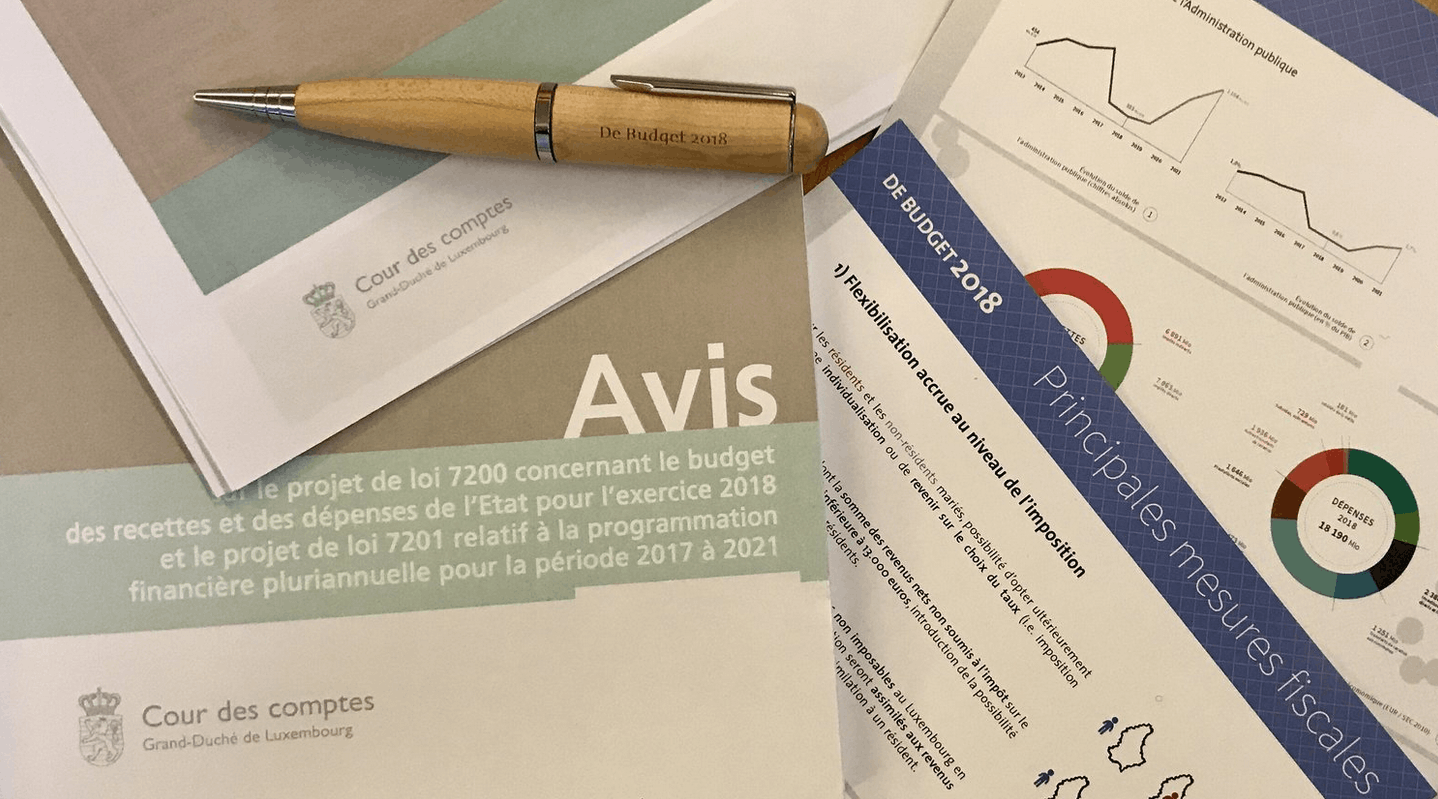Previously, the opposition CSV and ADR parties had already criticised that the government was not reducing debt levels when the economy experienced growth levels of 3.4% growth.
The draft budget foresees expenses rising by 6.49% compared to the 2017 final budget. That is €914.9 million more than in 2017. Revenues should rise by 6.20%, so that the deficit should stand at €945.3 million in 2018. The current calculations of the government included the current demographic projections: 1.1 million by 2060 and growth levels permanently at over 2%.
The National Council on Public Finances (CNFP), which advises the government, warned that everything was going well for the moment, but it was not sustainable in the long run, because of a rapidly ageing population and the increased social spending associated with that. It also specifically suggested decoupling the yearly budget from the multiannual budget. Growth levels were much lower than the forecasts, on which the budget was based, and the revenue calculations should be accordingly revised downwards. It also recommended raising the medium-term budgetary objective to between +0.25% and +1% of GDP for 2020-2022.
The Court of Auditors, which checks public spending for parliament, issued several warnings as well. While the finance minister projected that debt levels will fall between 2017 and 2021, the Court of Auditors noted that this would be largely due to high growth levels, not any policies that would actively lower them.
The Chamber of Commerce recently joined the chorus as well. Debt levels would effectively grow by 10% to €1.3 billion between 2017 to 2021. Furthermore, lower than predicted growth levels were not taken into account, meaning there might be an “overestimation of revenues” and “uncertainties surrounding expenses”, it said. The business lobby was disappointed that the 2018 budget and multiannual framework do not anticipate the future budgetary, economic and social challenges. It also warned that the escalation of social security payments, especially pensions, “is around the corner.”
The Court of Auditors also examined the sustainability of the pension system, and warned that “procrastination” would jeopardise the pensions of future generations. Over the past years, expenses related to pensions have been growing continuously, while contributions have not kept up. The general pension system would be in deficit by 2023, and reserves depleted by 2043, the body forecast.
The Chamber of Commerce also took issue with Gramegna’s assertions that investment levels are extraordinarily high to prepare the country for the future. Public investments by the whole administration in 2017 did not exceed with 4.3% the historical average of the period 1995-2017, which lay at 4.17% of GDP. They would even decrease by 2021.
Elvinger defends budget
In an interview with RTL on Monday 27 November, liberal MP Joëlle Elvinger, who presented the report on the budget, defended the current draft law. She argued that it is a budget for the next generations. She said:
“The finance ministry is basing its calculations on the real revenues that the tax authorities receive. The 2017 numbers show that the finance ministry has been correct so far. The finance minister has presented the accounts and the numbers have always been better than those forecast, which demonstrates that the finance ministry conducts a very cautious policy.”
She added that:
“This government started with a state debt that exploded, we had a big loss of revenue from losing taxes on digital companies. But this government managed to get public finances back under control, which is confirmed by Brussels, who even says that we have some margins. The Triple A is being confirmed again and again by the rating agencies. The gap between revenues and expenses in the central administration is getting smaller, which shows we’re on the right track. If we look at the multiannual framework for the budget, we will have a balance by 2021, despite the high investment levels and despite a tax reform. This tax reform gave households back some purchasing powers and companies became more competitive. Investments will stay high in schools, crèches and roads and public transport for future generations.”
